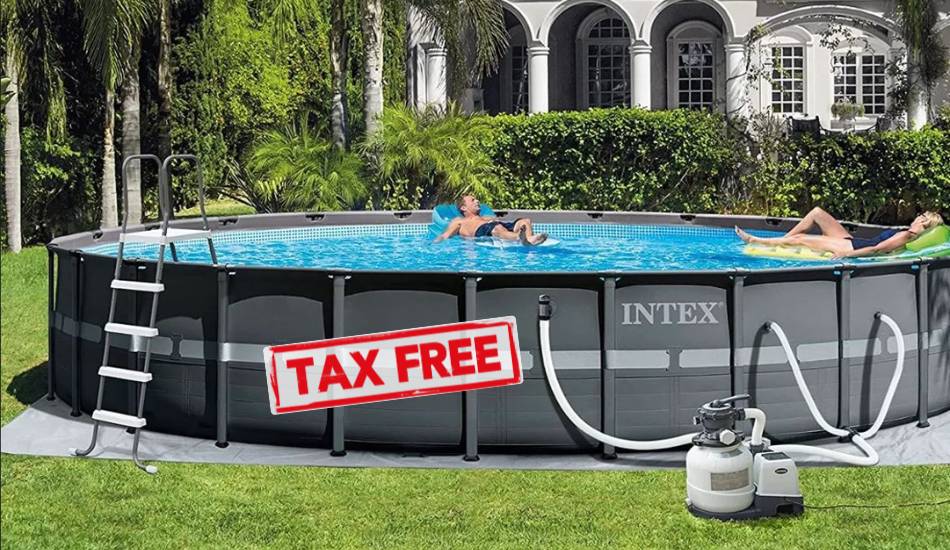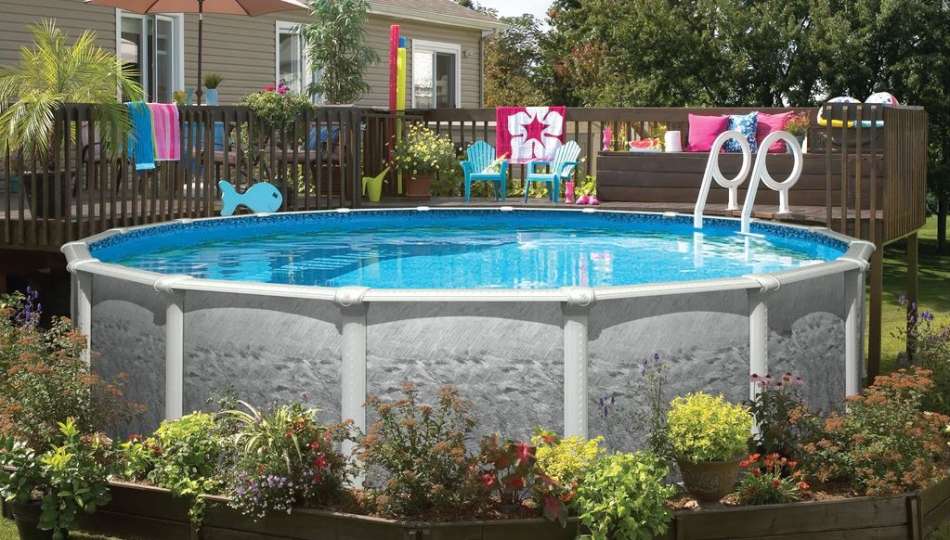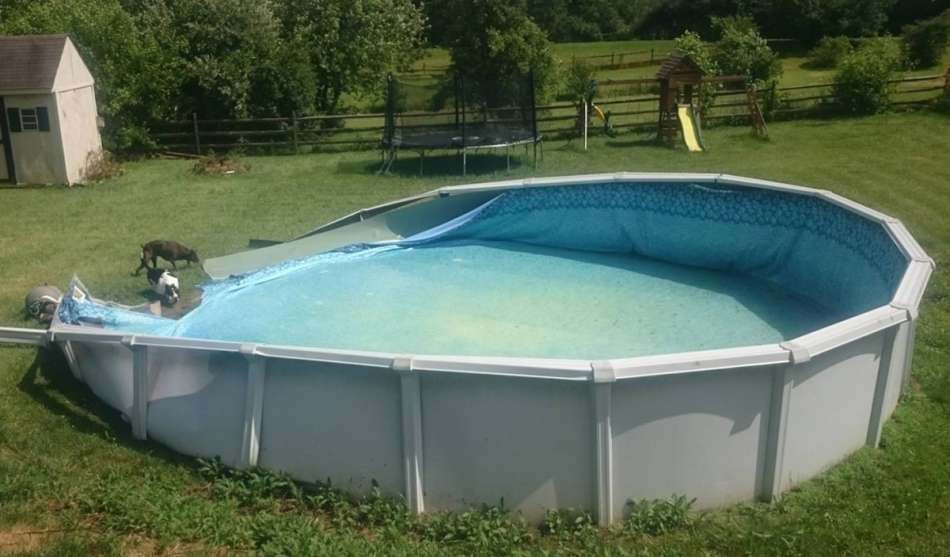Does An Above Ground Pool Increase Property Taxes?

The swimming pool is a great investment that brings great joy, especially because you can easily jump in it whenever you want. Imagine being stressed and being able to relieve this stress by simply swimming in your own pool? It sounds like a great investment, but there are things you need to consider. There are property taxes every homeowner needs to pay based on the size of their home and its complexity. That is why sometimes adding things like a swimming pool to your house can increase the property tax that you need to pay.
Does An Above Ground Pool Increase Property Taxes? No, above-ground swimming pools don’t increase property taxes. That’s because these types of pools don’t require construction on top of the land and can be easily added or removed by the homeowner, and they don’t add additional value to the property. However, in-ground pools increase property taxes.
By having a swimming pool in your backyard, you can increase the value of your property. But that is not the case with the above-ground pool, as they don’t increase property value, and that’s why they don’t increase property taxes. In this article, we will help you understand the basic things you need to know before you add an above-ground swimming pool to your property. But first, let’s start with what a property tax is.
What Is Property Tax?

By paying property taxes, you contribute to the state where you are located. It is levied on property that cannot be moved (land, buildings) and sometimes on the moveable property such as equipment or RV vehicles but also other property. This is a way to fund the local government, which in return funds public services like schools and also roads.
How Are Property Taxes Calculated?
Property taxes are calculated yearly, and they usually increase with every calculation. It depends on how much you will have to pay since there are a lot of factors that are considered. Every city decides on its own taxes, and it also depends on the state since it is not the same in every state.
The formula for calculating property tax is:
Property tax = assessed property value x mill levy
You will find out how much you have to pay for your property because an assessor is supposed to visit you and determine your property’s assessed value. By doing so, he determines its worth. If the value is higher, that means that you can sell it for more money, and you have to pay a higher property tax.
An assessor gives an estimated value by considering a few things like:
- The land size
- The size of a home that is on this land
- Sales-wise comparison to other buildings in the area
- If there are amenities such as stores or schools in the area
- The cost of rent
- The age of your home (newer homes have a higher value)
- The cost of replacement
There is a second part that is considered when calculating property taxes, and that is the mill levy. It is calculated by determining how much revenue a local government needs from these taxes to be able to fund public services and when calculated, it is a percentage.
For those who want to learn more, be sure to read The Pros And Cons of Pool UV Systems.
Above-Ground Pools Don’t Increase Property Taxes
Above-ground swimming pools don’t increase property taxes because these are the types of pools that can easily be added or removed. These pools don’t increase the property value, and that’s why the property taxes are not increased. However, in-ground pools do increase property value, and tax is also increased.
The Pros of Above-Ground Swimming Pools

There are advantages and disadvantages to both above-ground and in-ground pools. It is good to consider them before deciding to build a swimming pool. Therefore, here are the advantages of above-ground pools:
1. Low Cost
When it comes to price, above-ground swimming pools usually vary because there are a lot of factors to consider. Some of them are installation services and size, as well as other amenities. These pools may cost from $2200 to $5500, but the average cost, including a professional’s installation, is $3500. The cost of these pools is remarkably lower than the cost of in-ground pools. Usually, it costs thousands of dollars less than in-ground ones.
2. Tax Free
When it comes to above-ground swimming pools, they are NOT subject to property taxes. This is good news since you do not have to be concerned about paying more money because you have a swimming pool in your backyard.
3. Simple Installation Process
Above-ground swimming pools are easier to install than in-ground ones since you will probably not need to dig the hole to install them. There is a situation when you will need to level the ground, but that is only if your yard is not flat or not flat enough. This is mostly an easy task, and you will not need an extra pair of hands or a professional to do it.
For installing above-ground pools, you will need a few hands to help you, but nothing special. Pool companies often offer the installation of the swimming pool when you buy it from them. Other companies may charge you a fee for that, but it is not too high.
4. Portability
One of the greatest advantages of the above-ground swimming pool is its portability. You do not have to say goodbye to your pool if you decide to move places since it can easily go with you. It is easy to install, and it is also easy to take down. If you are moving to a place where there is no space for a swimming pool, you can easily sell it by repacking it and putting it for sale. That is a thing you will not be able to do with an in-ground swimming pool.
5. Quick Installation Process
Since above-ground pools are easy to install, it means that it is also a lot quicker than in-ground pools. It usually takes more to fill them up with water than to install them. It can take up to a few hours to finish the installation process with a little bit of help from your friends or the pool company.
The Cons of Above-Ground Swimming Pools

After we have listed the advantages of this pool, we will now see what disadvantages this pool has. Although this swimming pool is more affordable and doesn’t add the property tax to your house, here are some things you need to consider before buying one:
1. It Will Not Increase Your Property Value
As we have already explained that owning an above-ground swimming pool will not increase the property tax, it will also not add the property value. If you already know that you will move to another place, it sometimes does not make sense to spend money on above-ground swimming pools because you will get nothing out of it. When spending money on in-ground swimming pools, your property value increases, and you will maybe be able to earn additional money when you sell your home. In this case, investing in an in-ground swimming pool is smarter.
2. Small Style Options
There are many unique designs connected to in-ground pools, while above-ground pools don’t have so much. Usually, there are just three options to choose from when it comes to style and shape, and these options are usually rectangular, oval, and round pools. Accessories and amenities are also limited when it comes to above-ground pools like stairs or decking for them.
3. Shorter Lifespan
On average, above-ground swimming pools last up to 15 years. This does not seem short, but if you compare it to in-ground swimming pools that last a lot longer, it is sometimes not worth it. If you want to use your swimming pool for a longer period of time, you will probably want to invest in an in-ground pool. An above-ground pool is more affordable, but this disadvantage is also based on your preference.
4. Bad Aesthetic Design
Above-ground pools are usually not as pretty as in-ground pools, so if the design is important to you, this is also a disadvantage that may change your opinion. A swimming pool is the first thing someone will see in your yard, so if it is important to you that it looks more appealing to the eye.
5. Sensitive to Weather Conditions
If you aim for durability and resistance, above-ground pools are not your choice. They are usually not built to be able to stand through the storm. Any kind of damage to them may be fatal since it can result in them being unusable.
If you want to know more about Above-ground pools, be sure to check this YouTube video:
Maintaining Tips For an Above-Ground Pool
It is important to know how to properly maintain a swimming pool before deciding to buy one. Usually, above-ground swimming pools last around 15 years, but if you know how to maintain them and if you are doing it well, they may last longer than 15 years. Caring for your swimming pool will prolong its life, but it will also make sure that your pool is clean and safe to use. We will give you some tips on how to do it properly.
Checking the Chlorine Levels
The first test you will need to do and also repeat a few times a week is the chlorine levels test. If you use your pool frequently, you will also need to check the levels more often. You will know that everything is good if your chlorine levels are from 2 to 4 ppm (parts per million).
You should test your water by using chlorine testing strips. They will show you if the water is safe to use since chlorine kills algae, bacteria, and microorganisms that are dangerous for people.
Run the Pump
Most pool professionals suggest that it is good to run the pump of the pool for around 9 hours a day. This helps with water circulation, and it also helps with the effectiveness of the chemicals and fights stagnant water.
Regular Pool Checks
Above-ground pools can become dirty very quickly, so it is important to clean it on a regular basis to make sure that they are safe to use. By doing regular checks and cleaning, you will make sure that your pool is clean, safe, and ready to use.
Measure the Water pH Level
A check that you should perform around 2 times a week is the pH levels check. This check is important since a good pH level means clean water, and it enhances the chemical effectiveness. They should be between 7.2 and 7.6, and it is good to use a digital reader.
Regular Check of the Filter
Pool’s filter removes unwanted things from your swimming pool and helps these chemicals to work. However, they need regular maintenance to prevent the overworking of the pump. They are usually not expensive and cost less than $18, but they are a very important part of your pool.
How Long Do Above-Ground Pools Last?
If you buy a high-quality pool, like the Valley Pool & Spa one, it should last from 10 to 20 years. This also depends on how you maintain your pool. Pools can last longer, but pool liners usually do not, so you will probably need to change it while you own a pool.
Final Thoughts
If you wish to buy a swimming pool but are scared that it will increase your property taxes, then the best option is to opt for an above-ground swimming pool. That way, you’ll don’t need to pay a property tax. If you add a permanent fixture to your home, like an in-ground swimming pool, your property value will increase, and you will need to pay higher taxes. If you wish to increase your property value, then in-ground pools are for you, but if not, you should stick to above-ground ones. They are portable and can easily be put down and moved, so they do not add any value to your property.

